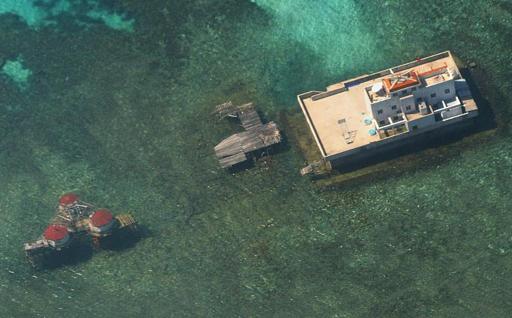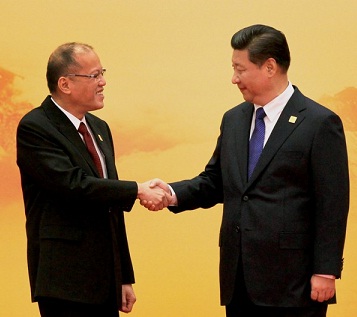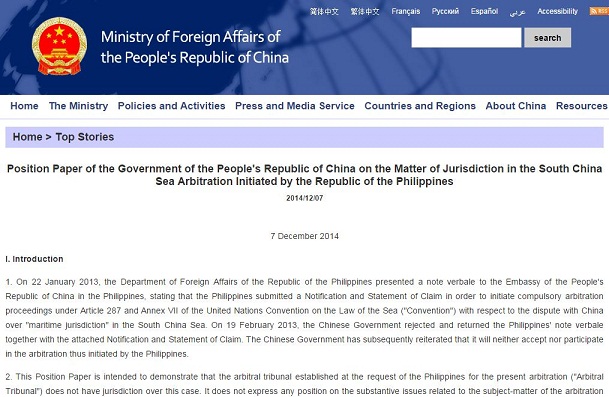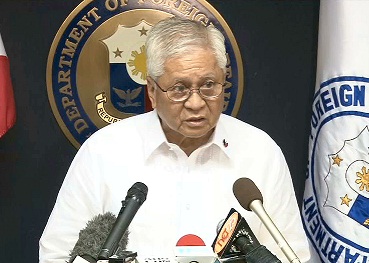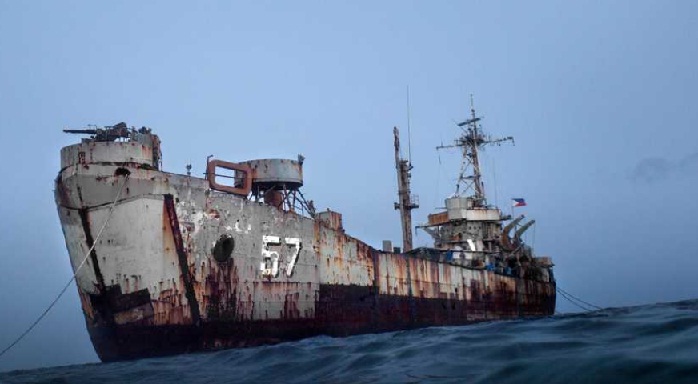
China released this photo of a garden in Fiery Cross which the Philippines says is a reef which cannot sustain habitation.
As China continues its massive reclamation and construction in areas surrounding the seven reefs that it occupies in the disputed Spratly islands in the South China Sea, the Philippines can only watch helplessly.
The Philippine government’s protests through media now sounds like a broken record.
The United Nations International Tribunal on the Law of the Sea will start the hearing of the Philippine suit against China’s nine dash line map which encroached on territories of the Philippines, Brunei, Indonesia, Malaysia and Vietnam on July 7.
But even a favorable decision by the U.N Arbitral Tribunal, which is expected next year, won’t bind China which has refused to participate in the legal process.
What is left for the Philippines to do then?
Two weeks ago, Supreme Court Senior Associate Justice Antonio Carpio, who has taken almost singlehandedly the job of educating Filipinos and the world on the South China Sea dispute, suggested that the Philippines should ask the U.N. for a “provisional measure” to stop China’s reclamation and construction activities in the disputed seas.
The UN Convention of the Law of the Sea or UNCLOS provides that if a dispute has been duly submitted to a tribunal of competent jurisdiction, the tribunal may prescribe any provisional measures which it considers appropriate under the circumstances to preserve the respective rights of the parties to the dispute or to prevent serious harm to the environment, pending the final decision.
Lawyer Harry Roque, who is director of the UP Law Center’s Institute of international Legal Studies, disagreed saying it might boomerang and adversely affect the Philippine suit against China.
“This action could likely trigger the reservation clause that China had placed, and which the Tribunal has allowed: namely that it be allowed military and law enforcement activities in connection with the exercise of sovereign rights,” Roque said.
Former Philippine Permanent Representative to the United Nations Lauro Baja Jr. had suggested seeking provisional measures immediately after the Philippines filed a suit against China way back in January 2013 but sources at the Department of Foreign Affairs said the legal panel is concerned that it might weaken the Philippine position on the matter of the jurisdiction of the U.N court.
Carpio addressed these concerns in his lecture last Thursday at the Pamantasan ng Lungsod ng Maynila.
Carpio said China cannot use its reservation in the UNCLOS to justify its reclamations and constructions in its occupied features in the Spratlys because it has always said that they are “civilian functions,” and military facilities will be installed only incidentally, to defend the civilian structures.
“ Clearly, China does not want to invoke ‘military activities’ as the purpose of its reclamations. Subi Reef, one of China’s big reclamations from a submerged area, is situated in the high seas. Article 88 of UNCLOS mandates that ‘the high seas shall be reserved for peaceful purposes,’ preventing China from invoking ‘military activities.’ If China admits that its reclamations are for ‘military activities,’ it will immediately be in glaring violation of UNCLOS,” Carpio further said.
Carpio also cited Article 192 of UNCLOS which states that “States have the obligation to protect and preserve the marine environment” and Article 123 which requires coastal states in semi-enclosed states to “cooperate with each other in the exercise of their rights and in the performance of their duties under this Convention xxx with respect to the protection and preservation of the marine environment.”
Carpio said China’s massive and wanton reclamation in the Spratlys is destroying the marine environment and it did so without notifying, consulting or cooperating other coastal states.
What’s the word from the Department of Foreign Affairs or Malacañang?
